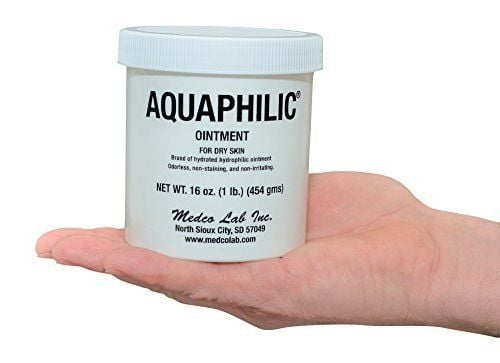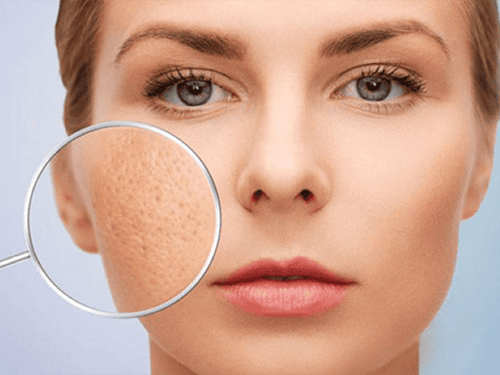This is an automatically translated article.
As we age, the body produces less collagen and elastin. They are responsible for keeping the skin healthy, flexible and elastic. The antioxidants in vitamin C can boost collagen levels and minimize fine lines, wrinkles, and scars. Therefore, vitamin C derivatives to beautify the skin are widely used in cosmetics in many forms.
1. How does Vitamin C beautify the skin?
Vitamin C is an essential nutrient that has many functions in the human body. Unlike most animals, humans cannot make vitamin C.
The body needs to get vitamin C from its diet through foods such as citrus fruits, bell peppers and green vegetables.
Vitamin C is especially important for maintaining healthy skin. Skin cells use vitamin C to protect themselves from the stress effects of pollutants, smoke, and UV rays.
The skin also needs vitamin C to participate in the production of collagen. Collagen is a protein that makes up more than 70% of the skin's dry weight, and is responsible for maintaining the elasticity and youthfulness of the skin. Skin-beautifying vitamin C is a common ingredient in many skin care products including moisturizers, serums, and body lotions. Powdered Vitamin C is a relatively new product on the market, but it has gained popularity in recent times. It can be mixed with serums or moisturizers to help protect facial skin and reduce signs of aging.
Vitamin C is mostly safe to use, but in rare cases, side effects can occur such as stinging, redness, dry skin. As with any new product, try checking the ingredients for any allergies before using them.
MORE: 20 foods rich in vitamin C

Vitamin C là một thành phần phổ biến trong các sản phẩm chăm sóc da giúp làm đẹp da
2. Vitamin C Serum
Vitamin C is an antioxidant, which works to prevent environmental and sun damage to cells on the surface of the skin. The benefits of vitamin C are maximized when applied directly to the skin. Whether you're looking to simplify your skin care routine or not, a vitamin C serum can be a good choice. Topical Vitamin C is a multi-purpose medicine that can protect, repair and enhance the beauty of the skin. However, like any product, not all serums are created equal. Ingredients like vitamin C type and concentration, ingredient list, and even the type of bottle or dispenser will make or break the serum's benefit to your skin.Some people choose to supplement vitamin C with homemade products, however it is difficult to control the quality by doing this, even they can be unsafe and ineffective.
When we eat, drink or take vitamin C supplements, also known as ascorbic acid, our skin only receives a small portion. However, the vitamin C derivative present in the serum, after it has been chemically altered, can actually be absorbed more by our skin and exert a greater effect.
Vitamin C serum benefits include:
Reduces wrinkles Protects and increases collagen production Supports wound healing Helps protect skin from sun damage Reduces hyperpigmentation Evens skin tone Brightens skin Acts like armor against pollution and other free radicals If you're wondering when to apply a vitamin C serum, the answer is both morning and night, after cleansing and conditioning. One study even recommends applying a vitamin C serum every 8 hours, or twice daily, for maximum protection.
Vitamin C has photoprotective properties and prevents oxidative stress from free radicals that we encounter throughout the day. These free radicals can come from car smoke, cigarette smoke, certain chemicals, and even alcohol and processed foods.
But don't worry if you skip a single use of vitamin C serum. Unlike sunscreen, moisturizer, or moisturizing oil, vitamin C cannot be wiped off or washed off easily.
Vitamin C's ability to protect against and fight against free radicals diminishes, but you can still build up a full layer of protection with repeated use every eight hours.
In addition, UV rays reduce the concentration of vitamin C in the skin. Topical vitamin C is best used after UV exposure, not before. While a vitamin C serum is no substitute for sunscreen (in fact, sun sensitivity increases with use), the combination of a vitamin C serum with sunscreen can enhance the effects. protect skin from damage.
A vitamin C serum should include the following ingredients and characteristics:
Vitamin C: Should be in the form of L-ascorbic acid, as this is the most effective form. Make sure that L-ascorbic acid is noted near the top of the label, ideally as one of the first five ingredients. The lowest concentration of vitamin C required to be effective is higher than 8%. The concentration of vitamin C in serums is ideally between 10 and 20 percent. But vitamin C over 20% can lead to skin irritation while not increasing its benefits. Vitamin E: The combination of vitamin C and vitamin E, or L-ascorbic acid and tocopherol, should appear on the serum's ingredient list. Think of these skin boosters as best friends that go well together. Vitamin E stabilizes vitamin C for maximum skin protection. Another antioxidant called glutathione is also a good complement to vitamin C. Then check for ferulic acid, which helps to lower the pH of vitamin C below 3.5% How to pack: Exposure to Air, light, and heat can degrade vitamin C serums. Look for a product that comes in a dark glass bottle with a dropper, rather than an air pump. Some retailers suggest storing the product in the refrigerator to extend its shelf life. A thoughtful brand will have instructions on how to store their vitamin C serum. Many vitamin C serums are yellow, but if the product has turned a deep brown or orange, it's time to throw it out because it's spoiled. If your serum starts to clear and turns yellow, that is also a sign it is oxidizing and will be less effective.

Serum vitamin C có tác dụng giảm nếp nhăn, tăng sản xuất collagen
3. Vitamin C derivatives in powder form
Currently, there are not too many studies on the effects of vitamin C powder on facial skin. However, based on research using other topical forms of vitamin C, powdered vitamin C may have the following benefits:
Vitamin C powder to treat sun damage : Applying vitamin C to the face May help reduce the appearance of dark spots caused by sun damage. Topical vitamin C inhibits the production of melanin, which is what causes the skin to darken. Vitamin C powder to prevent sagging skin: Your skin produces less collagen as you age. The loss of collagen is one of the factors that causes your skin to sag over time. Applying vitamin C to your face can help improve your skin's collagen production, especially if you spend a lot of time in the sun or your diet is deficient in vitamin C. Vitamin C powder reduces wrinkles: As you age As you go, your skin tends to become less elastic and thinner, which can contribute to wrinkles. Although the formation of wrinkles is largely predetermined by genetics, repeated exposure to UV rays can break down collagen and elastin and cause your skin to age prematurely. Applying vitamin C powder to your face can protect your skin from sun damage. Vitamin C Powder for Wound Healing: The body needs vitamin C during all stages of the wound healing process. Applying vitamin C to a wound can speed healing and reduce scarring. Vitamin C to protect skin from sun and pollution: Your skin is constantly exposed to harmful UV rays and pollution in the atmosphere which can cause oxidative stress. Vitamin C acts as an antioxidant to protect your skin from these agents. Applying vitamin C powder on the face can help saturate the amount of vitamin C that the cells have available. When applying vitamin C powder to your face, it's important to make sure you're using the powder for topical application. Using crushed vitamin C alone is unlikely to be effective.
Here are a few ways you can apply powdered vitamin C to your face:
Put a small amount of powder in the palm of your hand. The powder packet will be packaged and give you specific instructions on how much to use. Mix vitamin C powder with serum or lotion in the palm of your hand. Studies have found that for vitamin C to be beneficial, it needs to make up at least 8% of the solution. Concentrations higher than 20% may cause skin irritation. Apply the solution to the entire face or to certain areas of the skin. As with any other skin care product, you should test a small amount of powdered vitamin C on a small part of your skin in an inconspicuous spot for 24 hours before applying it to your entire face. This way you can see if you are allergic to it.
Please dial HOTLINE for more information or register for an appointment HERE. Download MyVinmec app to make appointments faster and to manage your bookings easily.













